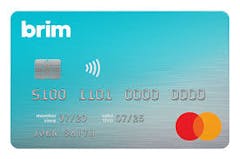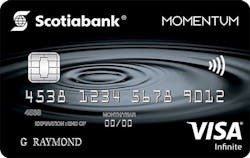Determining the Best Credit Cards for Bad Credit
There are several factors we consider when looking for the best credit cards for bad credit. These include:
- Secured
- Unsecured
- Guaranteed approval
- $0 annual fee
- Accessible to new immigrants
Credit Score
You’ve probably heard the term credit score before. But what exactly is a credit score? And what determines a good or bad credit score?
Credit Reports
To understand your credit score, it’s important to first understand what a credit report is.
A credit report shows your credit history. That is, how much you’ve borrowed and repaid over the years.
Your credit report begins the first time you apply for a credit card or take out a loan.
A credit report can be viewed by several different people and organizations. This may include:
- Employers
- Landlords
- Banks and other financial institutions
- Governments, and more
A credit report may be acquired for many reasons, including:
- Insurance applications
- Job applications
- Property rental applications
- Consideration for a loan or credit card, and more
Credit Bureaus
Credit bureaus collect information from lenders and create your credit report. Examples of credit bureaus in Canada include:
- Equifax
- TransUnion
Good and Bad Credit Scores
Your credit score is a number that takes into consideration your credit report. This number helps financial institutions predict how risky it will be to lend money to you.
A credit score can be anywhere between 300 and 900. A high credit score indicates good credit and a low credit score indicates bad credit. The following indicates how credit scores are viewed by banks and other financial institutions:
- 800 to 900 = excellent
- 720 to 799 = very good
- 650 to 719 = good
- 600 to 649 = fair
- 300 to 599 = poor
A credit score is based on several factors. Some of the considerations taken when calculating a credit score include:
- Amount of time you’ve had credit - the sooner you get a credit card and start to use it (and pay it off), the quicker you can build your credit score.
- Credit card use - the more you use your credit card (and pay it off in full each month), the better your credit score will be.
- Unpaid debt - if you don’t pay your credit card debt or other loan debt, this will reflect poorly on your score.
- History of bankruptcy - bankruptcy will also negatively affect your credit score.
- Amount of credit applications - if you apply for too many credit cards, this may look bad to credit lenders.
Keep in mind that too many credit checks can also be alarming to lenders. Many credit checks can indicate a constant need for loans and therefore a misuse of money. As a result, this can negatively affect your credit score.
In Canada, an individual needs to give permission for someone to check their credit. However, there is an exception to this rule.
There are three provinces in which an individual only needs to know that someone is checking their credit. As long as the individual is aware, their credit score can be checked, even without permission. These provinces include:
- Saskatchewan
- Prince Edward Island
- Nova Scotia
A credit report includes sensitive personal and financial information. This information may include:
- Name
- Date of birth
- Address
- Driver’s license number
- Passport number
- Current and previous employers and job titles
- Social insurance number
- Bounced cheques
- Current loans and credit cards
- Bankruptcies, and more
Secured vs Unsecured Credit Cards
When considering a credit card for bad debt, keep in mind that there are two types of credit cards.
- Secured credit cards
- Unsecured credit cards
Both of these types of credit cards can help you build or rebuild your credit rating. However, there are several differences among them.
Secured Credit Cards
A secured credit card requires you to put down a deposit that is the same amount as your credit limit. This way, if you are unable to pay off your credit card, the financial institution can use the deposit as collateral.
For example, you get a secured credit card with a maximum credit limit of $1,000. Here, you would have to supply the credit card issuer with a $1,000 deposit. After paying this deposit you will be approved and receive your credit card.
Depending on the credit card, and your financial situation, you can put down a deposit anywhere from $500 to $10,000.
This may seem counterintuitive since you already have the $1,000 to spend. However, you can continue making purchases up to $1,000 and paying them off with this one time deposit.
Unsecured Credit Cards
With an unsecured credit card, no deposit is required. This is the most common type of credit card. Unsecured credit cards are more likely to include benefits such as cash back or rewards.
With a credit score of 600 or greater, you won’t likely have a problem getting an unsecured credit card.
Some unsecured credit cards may be offered to those with poor credit ratings. However, the credit limit will likely remain low.
Tip: If you don’t qualify for an unsecured credit card initially, use a secured credit card first. Then switch to an unsecured card once you have rebuilt your credit rating.
Guaranteed Approval
When a credit card advertises that approval is “guaranteed”, it’s important to consider what that actually means.
Legally, Canadian financial institutions cannot hand out credit cards to every person that applies. There are age requirements that must be met and well as additional conditions. Therefore, a guaranteed credit card just means that credit rating and income will not be a factor in the application process.
As a result, if you have bad credit and are looking for a credit card, consider cards with guaranteed approval. As long as you meet the minimum age requirements, and other simple conditions, you will be approved. Once approved you can start building or rebuilding your credit.
Annual Fees
Both secured and unsecured credit cards may have annual fees. Therefore, be sure to choose a credit card with a low or $0 annual fee. This will help you save money so that you can put it towards building your credit.
Accessible to New Immigrants
New immigrants to Canada will need to begin building their credit rating. Previous credit ratings will not transfer from other countries to Canada.
A simple way to begin this process is by getting a Canadian credit card.
A secured credit card is the most accessible credit card for new immigrants. However, it’s possible to find unsecured credit cards available to new immigrants as well. Often, these cards require a certain status. For example:
- Permanent resident
- Foreign worker (with a visa)
- International student (with a visa)
Prepaid Credit Cards
Prepaid credit cards are a good alternative for individuals who have poor credit scores. There are two types of prepaid credit cards available. These include:
- Prepaid gift cards
- Reusable prepaid credit cards
These types of credit cards do not require a credit check or any other personal or financial information.
Prepaid credit cards will not aid you in rebuilding your credit score. However, they will allow you to use credit card networks, such as Mastercard or Visa, while making purchases online or in-store. This is often more convenient and safer than using cash, cheque, debit or e-transfer.
Strategies for Fixing Bad Credit
If you have a poor credit rating, there are steps you can take to improve it.
Some ways to rebuild your credit score include:
- Using a secured or unsecured credit card
- Paying off your credit card in full each month
- Using your credit card only for purchases you can afford
- Not allowing your credit card balance to surpass 30% of your credit limit
FAQs

Emma is responsible for all content on Creditcards360.ca. She has a college degree in economics and a keen interest in personal finance. Get in touch with her by email.

